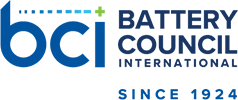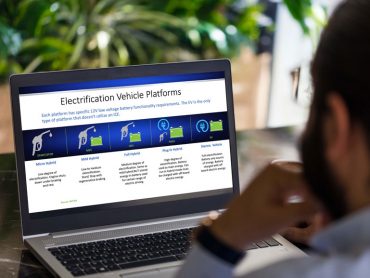
The Number of Electrical Devices in Vehicles will Triple by 2025 and Low Voltage 12 Volt Batteries are Essential to On-Board Safety, Entertainment and Computer Systems
WASHINGTON – FEBRUARY 15, 2022 – In the lead up to National Battery Day, February 18, Battery Council International (BCI), has released a new webinar integral to federal policy discussions that will shape the country’s transportation and energy future. In the 20 minute webinar titled “Vehicle Electrification and the Role of Batteries,” leaders from leading battery manufacturers Clarios and East Penn Manufacturing Company discuss the role of advanced batteries in the evolution from today’s internal combustion engine (ICE) autos to fully electric and autonomous vehicles and the hybrids in between.
“The electric needs of today’s vehicles have increased approximately 50% over the past 10 years, and the 12 volt advanced lead battery will be the reliable, sustainable and safe energy source for these functions as the shift to electrified and autonomous vehicles intensifies,” says Roger Miksad, executive vice president, BCI.
“Every electric vehicle requires a low voltage system to power all of the computers, electronics, safety systems and entertainment systems in the vehicle to supplement the very large battery pack that controls the electric motors that turn the wheels.”
The webinar is available on demand to make it accessible to viewers at a time and place of their choosing. “We know that policymakers and our stakeholders have busy schedules,” said Miksad. “Our goal is to provide them with the information they are looking for on their schedule, not ours. Just as streaming has become a preferred method for viewing television shows and movies, we believe it’s also an effective way to connect with policymakers.”
The U.S. lead battery industry has an annual economic impact of $26.3 billion with more than 92,000 direct and indirect jobs across 38 states. Lead batteries are a baseline energy storage technology used in automotive, telecommunications, electric power, mining, agriculture, marine, and data centers. They are the most recycled product in the world, boasting a 99% recycling rate. Lead batteries provide 60% of the global rechargeable energy storage market, and have significant potential for even better performance to serve increasingly demanding requirements for vehicle electrification and the integration of renewable power to the electric grid.
Battery Council International is the North American trade association representing the lead-based battery manufacturing, supply, recycling and distribution companies. For more information on the association, visit www.batterycouncil.org.
Essential Energy Everyday is a communications initiative to increase awareness of the critical importance of lead batteries in powering our daily lives. It encourages continued investment in sustainable lead battery technology to store and provide energy on demand. The initiative is supported by Battery Council International, a global trade association that represents the lead battery and lead industries.
About the webinars: The series is created in partnership with BCI’s communications initiative Essential Energy Everyday. The content is designed to highlight ways to meet U.S. energy storage needs through domestic resources, and why supply chains, manufacturing infrastructure, minerals and battery innovation are essential to meet these goals.
Last fall BCI launched the series with “Critical Minerals & Supply Chains for U.S. Energy Storage,” in which Miksad and Dr. John Uhrie, vice president, exploration, research and technical development for The Doe Run Company, discussed the role of metals and minerals for a low carbon future in the U.S. and internationally.







